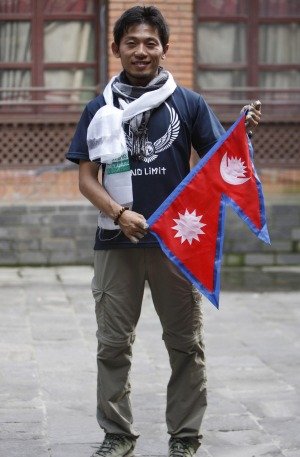Japanese climber Nobukazu Kuriki, who lost nine fingers to frostbite in 2012, is nearing the final stage of an attempt to climb Mount Everest.
Latest contact suggests that Nobukazu Kuriki, 33, has reached the South Col, where he will rest before a final push on September 26 to reach the summit.
Nobukazu Kuriki is the first person to attempt the climb since Nepal’s devastating earthquake in April.
It will be his fifth try at reaching the summit in the past six years.
Nobukazu Kuriki is expected to rest on the South Col for about seven to eight hours before attempting the final leg of the climb.
Tackling the final stretch overnight allows climbers to reach the summit and descend in daylight, and the lack of heating from the Sun can mean lower winds.
Nobukazu Kuriki, who arrived in Nepal more than a month ago to begin acclimatizing, is so far the only person scheduled to climb Everest during the challenging autumn season.
He is following the same route used by Edmund Hillary and Tenzing Norgay when they became the first people to reach the summit in 1953.
Nobukazu Kuriki prefers to climb in winter, alone and with minimal gear.
“This is the purest form of climbing and it is worth the extra danger,” he has said.
He has taken on Everest alone four times in the previous six years but has been forced to abandon the climb each time with the summit in view.
In 2012, Nobukazu Kuriki lost all of his fingers and one thumb after spending two days in a snow hole at 27,000 feet (8,230m) in temperatures lower than -20C.
His injuries present significant challenges in even the most basic climbing maneuvers.
“I do feel nervous and afraid,” he told Reuters shortly after arriving in Nepal.
“This is only natural before attempting the challenge of climbing Everest, particularly after the earthquake and at this time of year.”
Nepal’s lucrative climbing industry was destroyed by the April 25 earthquake which killed more than 9,000 people and the avalanches that followed.
If Nobukazu Kuriki is successful, his climb may help to reinvigorate the ailing industry, correspondents say.
